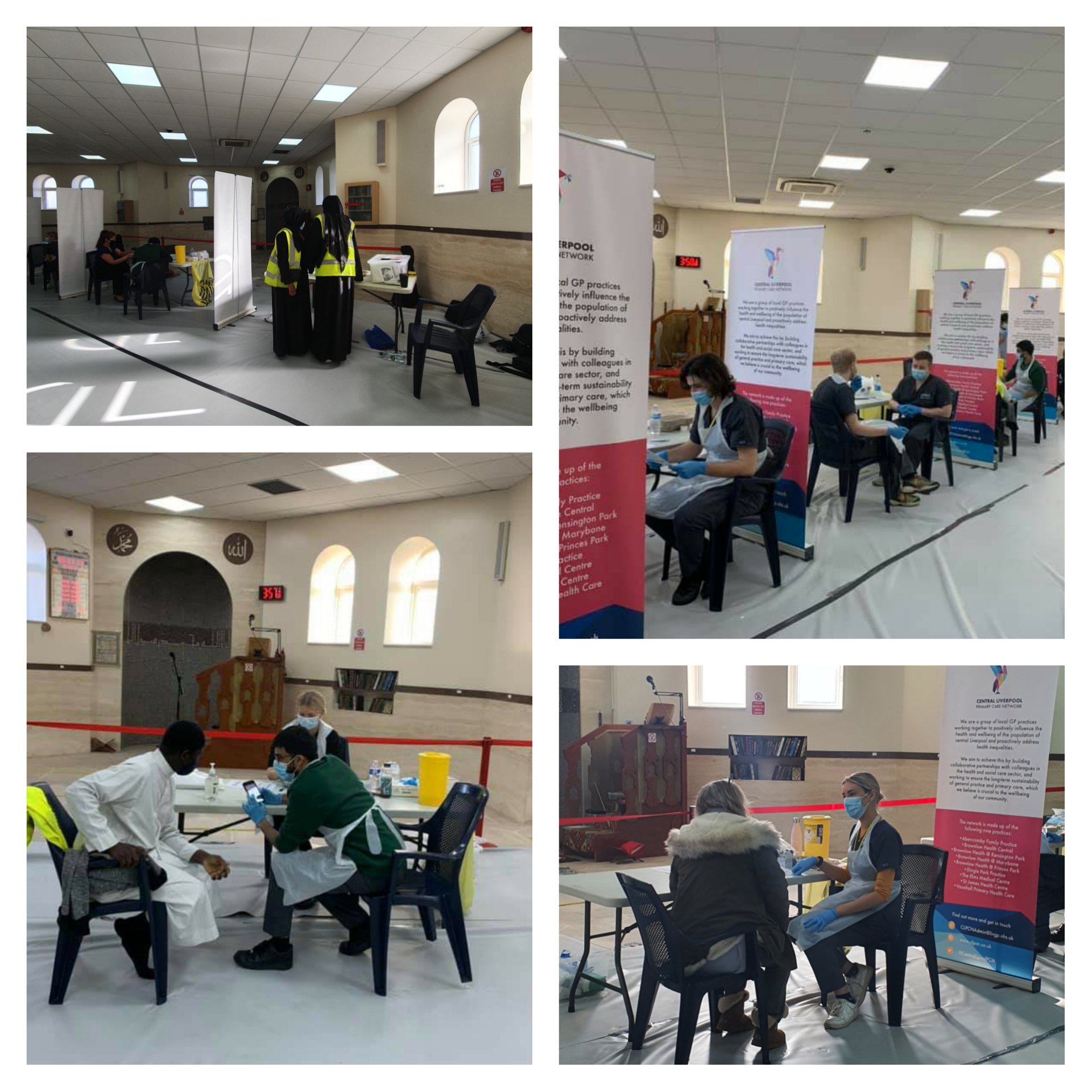COVID-19 study explores perceptions of risk and experiences of social distancing and isolation in Muslim communities

Newly published research has indicated the social and economic health inequalities Muslim communities have faced across the North West of England during the COVID-19 pandemic. Such factors have influenced both the perceived risk of catching COVID-19 and also shaped individual behaviour to reduce transmission of the virus.
The research, by the Applied Research Collaboration North West Coast (ARC NWC), was conducted during 2020 by a collaboration of academics and public/community representative. It comes amidst growing evidence that people from Black and Minority Ethnic Backgrounds (BAME) living in the UK are disproportionately affected by COVID-19.
A sample of residents was identified within several North West Muslim communities. All were aged over 18 years, English speakers and were invited to take part in the study. Data was collected through dozens of one-to-one interviews and focus groups, all conducted online.
Findings suggested the majority of the participants were aware of the dangers of COVID-19 and took the correct steps to mitigate risk of transmission including observing a range of hygiene practices and following social distancing guidance.
Key drivers for the perceived increase of exposure to COVID-19 amongst local Muslim populations were:
• The types of jobs Muslim/BAME populations were employed in
• Difficulties in being able to socially distance from others within home environments and workplaces
• Lack of enforcement of social distancing within public spaces
The Muslim population makes up the second largest religious group in the UK. Muslim communities often consist of multi-generational households which can be impacted by high levels of comorbidity and are often located in areas of higher deprivation. Such conditions can increase the risk of COVID-19 infection and create barriers to social distancing or effective self-isolation. Traditions some Muslim groups hold including eating together (often from one plate) and sharing utensils, or intimate social behaviours such as kissing the hands or the heads of elderly family members. These practices can make the current COVID-19 interventions of social distancing and self-isolation alienating for many in Muslim communities.
However, Religious teaching was identified in the study as playing an important role in subsequently reinforcing the hygiene and social distancing guidelines within communities. The closure of local mosques during COVID-19 sent a strong message about the seriousness of the virus and took away traditional mechanisms for peer support and a facility for face to face communication between local residents.
The closures also led to a greater reliance on local information provided by official bodies and underscored the importance of improving provision and communication pathways that are responsive to ethnic and religious diversity.
Dr Shaima Hassan, a Postdoctoral Research Associate at ARC NWC, led the study. She said: “The impact of COVID-19 across the UK has highlighted the continuous health inequalities experienced by different communities, especially the Black, Asian and Minority Ethnic (BAME) communities. Our findings have highlighted the need for improved communication between local leaders and the provision of information to be made available in ways that are accessible to the BAME community. This is an essential component in delivering key public health messages during times of a pandemic, and could aid understanding of risk and promote adherence to social distancing restrictions”.
Public involvement played a key role in supporting the development of the study and reaching Muslim communities.
Naheed Tahir, a public adviser to ARC NWC said. “I am proud to have been actively involved from start to finish in a study that has managed to capture and identify the emotions, experiences and challenges of Muslim communities in lockdown.”
Professor Mark Gabby, Director of ARC NWC, said: “The potential value of this research to service providers is important. It encompasses an insight into health inequalities which can shape the perceptions of risk of the BAME population to a pandemic and specific groups such as the growing Muslim community. We will present findings to our NHS, local authority and third sector colleagues in addition to our large public adviser base who live across the North West Coast region.”
Local Muslim Mosque committees will also be targeted as part of the dissemination strategy to help support enhanced community engagement, and facilitate development of appropriate information strategy collaboration with local community leaders to ensure lessons from the pandemic for communicating with Muslim communities are learned and used proactively.
A collaboration of Central Liverpool Primary Care Network, Liverpool School of Tropical Medicine and Mersey Care have already joined in a community conversation about administering the Covid-19 vaccine to hard-to-reach groups and shared the learning from this study to enhance the strategy of vaccine uptake. Following on from this, ARC NWC staff are currently supporting the planning and implementation of vaccination pop up clinics in local mosques on Merseyside.
Read the Executive Summary.